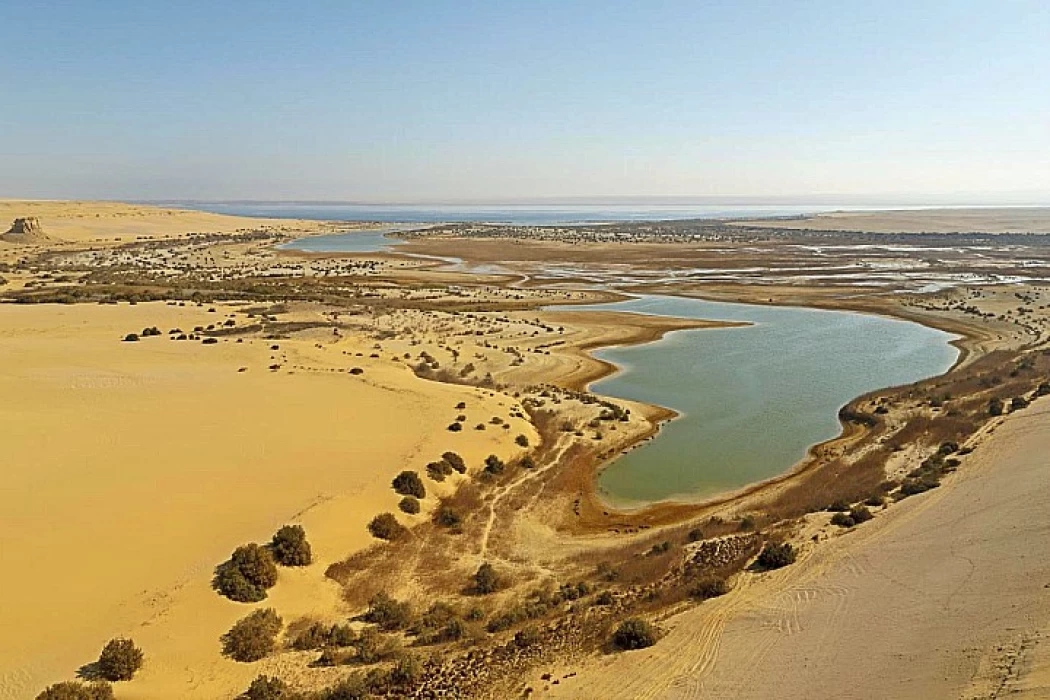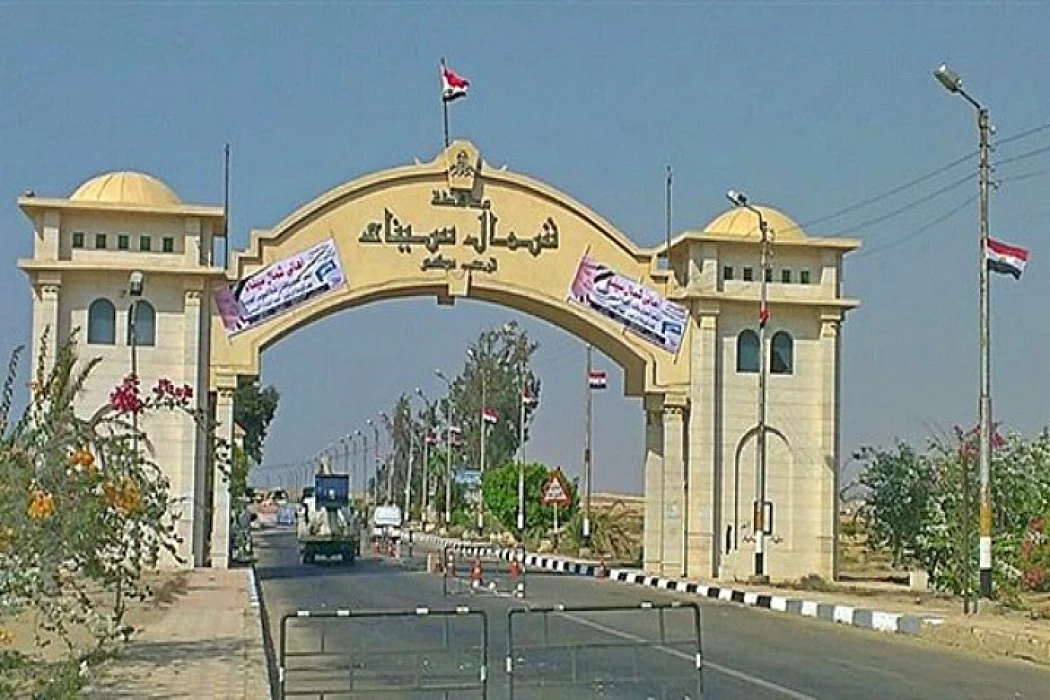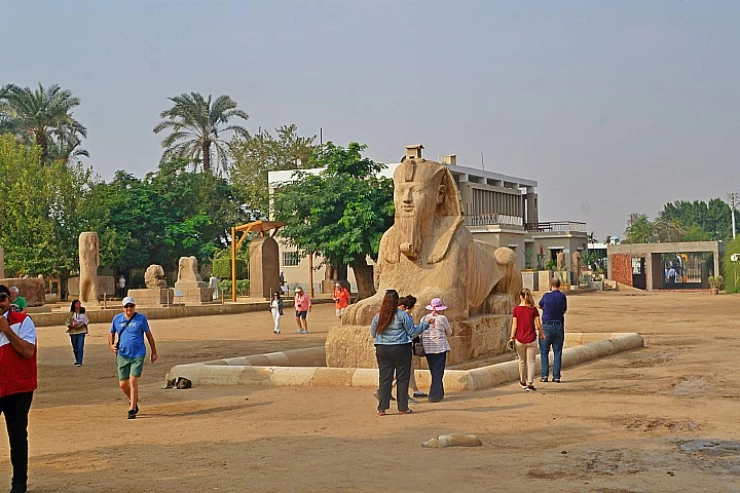Overview
Inclusion
- Enjoy plush transportation in air-conditioned cars, ensuring a relaxing ride throughout your private Egypt tours.
- Your expert Egyptologist guide will lead you on a captivating journey through the Egyptian countryside.
- Delight in the rich flavors of traditional Egyptian cuisine during a lunch stop in the village.
- Stay refreshed with a complimentary bottle of mineral water during your travels.
- All service charges and taxes are covered in our Cairo Day Tours package.
Exclusion
- Any additional items not listed in the Egypt Countryside Tours itinerary.
- Gratuities are not included in the Egypt Day Tours pricing.
- During Ramadan, tourist attractions close at 3:00 pm, so our tours will start one hour earlier. Also, we're happy to confirm that our prices apply for Christmas, New Year, and Egypt Easter tours.
Itinerary
Egyptian Countryside Tour
Your adventure in the Egyptian countryside, covering Dahshur and El Monofia, will begin when your licensed tour guide from Cairo Top Tours meets you at your hotel. Kick off your tour with a light breakfast paired with a refreshing cup of mint charcoal tea. Throughout the day, you’ll have the chance to engage with residents, learn about their agricultural practices, and even get hands-on if you wish.
A delicious lunch will be served, allowing you to assist with meal preparations while enjoying mint tea, fresh juice, cookies, or cane sugar.
Your knowledgeable guide will accompany you and your new friends from the village as you stroll along the man-made canals that irrigate the land, a technique inherited from ancient Egyptians. You'll also visit a cheese factory and a barnyard where various native farm animals are raised, including water buffaloes, camels, goats, sheep, and chickens. For some fun, you can choose to ride a donkey or swing from a tree. To top off your day, relax in a lovely garden and enjoy the picturesque sunset.
This unique tour offers a glimpse into the daily lives and professions of people in a typical Egyptian village. Your guide will highlight the most fascinating spots, introducing you to the friendly locals and helping you communicate with them. Be ready to create unforgettable memories as you explore the charming countryside! Your tour will conclude with a return to your hotel in Cairo.
Price
| Number of Persons | Prices |
|---|---|
| 1 Person | $140 Per Person |
| 2 - 3 Persons | $80 Per Person |
| 4 - 6 Persons | $85 Per Person |
| 7 - 10 Persons | $45 Per Person |
Start from : $45
Check Availability


You Also May Like
Looking for something different? check out our related tour now, or simply contact us to tailor made your Egypt tour
Tour to Giza Pyramids and the Egyptian Museum in Cairo
Make sure you seize the opportunity to be among the initial explorers of the recently uncovered secret passage inside the Great Pyramid of Giza. Experience the wonders of the world, including the Sphinx and the three famous pyramids. Also, during our day trip to Cairo, you'll have the chance to admire the incredible ancient artefacts at the Egyptian Museum.
Tour to the Egyptian Museum, Old Coptic and Islamic Cairo
Explore the significance of Cairo by visiting the Egyptian Museum and admiring its impressive exhibits. You can also explore the renowned landmarks and churches of Coptic Cairo, which once housed the Holy Family and showcase unique icons. Furthermore, enjoy exploring the historic mosques of Islamic Cairo during your trip to Old Cairo.
Cairo Excursions to Giza pyramids, Sakkara and Memphis
With our extraordinary Giza pyramids, Sakkara and Memphis Tour witness the iconic pyramids of Giza and marvel at the magnificence of Egyptian pharaohs. Explore Egypt's ancient capital, adorned with a plethora of pyramids and tombs, and uncover hidden mysteries during your excursion in Cairo.
Cairo Stopover Transit Tour | Cairo Layover Tour
Embark on a thrilling journey through the ages as you explore the wonders of ancient Egypt. Begin your adventure at the iconic Giza Pyramids, marveling at the engineering feats and architectural mastery of these legendary structures. Next, delve into the extraordinary collection of artifacts housed within the Egyptian Museum in Tahrir Square.
Egypt Trips and Middle East Reviews
We received a lot of positive feedback from our customers about Egypt budget tours with Egypt Tours, which you can see on our social media pages, such as Trip Advisor, and YouTube videos. Our experts stay with travelers to every part of Egypt to explain to them the historical background of every site they see while they are on their Egypt and Holy Land tours.
You can immerse yourself in the countryside, stroll through lush green farms, indulge in refreshing mint tea with friendly locals, observe and acquire new recipes, or even explore the beautiful natural surroundings by cycling.
Exploring rural Egypt offers a unique opportunity to immerse yourself in the country's rich culture and natural beauty. Here are some of the best places to visit in rural Egypt to enjoy both local nature and culture:
Siwa Oasis: Located in the Western Desert, Siwa Oasis is known for its stunning landscapes, including lush palm groves and freshwater springs. The local Berber culture is unique, and you can visit historic sites like the Shali Fortress and the Oracle Temple of Amun. Don't miss out on experiencing the therapeutic properties of Siwa's salt lakes.
Aswan: Aswan, while not entirely rural, offers a slower pace of life compared to major cities like Cairo. You can explore Nubian villages along the Nile, visit the Nubian Museum, and take a felucca (sailboat) ride to experience the serene beauty of the river.
Luxor's West Bank: On the west bank of the Nile in Luxor, you'll find a wealth of archaeological sites and local villages. Explore the Valley of the Kings, the Valley of the Queens, and the Deir el-Medina village, where the workers who built the tombs lived.
Fayoum Oasis: Located southwest of Cairo, Fayoum is an oasis known for its fertile farmland, desert landscapes, and the stunning Lake Qarun. You can visit the ancient city of Karanis, the ruins of the Hawara Pyramid, and explore the unique local culture.
Bahariya Oasis: Another oasis in Egypt's Western Desert, Bahariya offers opportunities for desert adventures like sandboarding and jeep safaris. You can also visit the Black Desert, Crystal Mountain, and the Temple of Alexander the Great.
Travel document requirements for international travel can vary widely depending on your nationality, the destination country, the purpose of your trip, and the length of your stay. However, some essential travel documents and considerations for international travel typically include:
Passport: A valid passport is the most fundamental travel document required for international travel. Ensure that your passport is not expired and has sufficient blank pages for visa stamps, if necessary.
Visa: Depending on your nationality and the destination country, you may need a visa to enter. Check the visa requirements for your specific destination well in advance and apply if needed.
Travel Insurance: While not a mandatory document, travel insurance is highly recommended. It can provide coverage for medical emergencies, trip cancellations, lost luggage, and other unexpected events.
Flight Tickets: Have your flight tickets (or e-tickets) ready, and make sure they match your passport details.
Proof of Accommodation: Some countries may require proof of where you will be staying during your visit, such as hotel reservations or a letter of invitation from a host.
Travel Itinerary: It can be helpful to have a copy of your travel itinerary, including details of your flights, accommodation, and planned activities.
Travel Visa (if applicable): If you have obtained a visa for your destination, carry a printed copy or an electronic version on your mobile device.
International Driver's License (if applicable): If you plan to rent a car in your destination country, check if you need an international driver's license.
Vaccination Certificates: Some countries may require proof of specific vaccinations or health certificates, particularly in regions where certain diseases are prevalent. Check the health requirements for your destination.
Customs Declaration Form: Be prepared to fill out customs declaration forms, which may ask about the items you're bringing into the country.
Local Currency: Have some local currency on hand for immediate expenses upon arrival.
Emergency Contact Information: Carry a list of emergency contacts, including the contact information of your country's embassy or consulate in the destination country.
Travel Advisories and Alerts: Check for any travel advisories or alerts issued by your government regarding your destination. Register with your embassy if recommended.
Travel Wallet or Organizer: Consider using a travel wallet or organizer to keep your essential documents, such as passports, tickets, and travel insurance, organized and secure.
Electronic Devices: Ensure your electronic devices, such as smartphones and laptops, are charged and ready for use during your journey. You may need them for communication, navigation, or accessing digital documents.
Yes, there are several opportunities for countryside trips near Cairo, offering a break from the hustle and bustle of the city and a chance to explore the natural beauty and rural life of Egypt. Here are some options:
Fayoum Oasis: Located about 100 kilometers southwest of Cairo, Fayoum is a tranquil oasis surrounded by desert and farmland. The area is known for its serene lakes, including Lake Qarun, and the famous Wadi El Rayan protectorate. You can explore these lakes, visit the Water Wheels, and enjoy outdoor activities like bird watching, hiking, and sandboarding in the dunes.
Wadi Natron: This remote desert area is located about 120 kilometers north of Cairo. It's a peaceful destination known for its salt flats and natural beauty. You can visit the monasteries of Wadi Natron, explore the desert landscapes, and enjoy the solitude of this unique region.
Wadi El Hitan (Valley of the Whales): Located in the Fayoum Governorate, this UNESCO World Heritage Site is famous for its prehistoric fossils and ancient whale skeletons. It offers a fascinating opportunity to explore the paleontological history of the region.
Al-Azhar Park: While not a countryside trip in the traditional sense, Al-Azhar Park in Cairo offers a peaceful green oasis amid the urban environment. It's a great place to relax, take a leisurely walk, and enjoy views of historic Cairo.
Sakkara and Dahshur: These archaeological sites are not far from Cairo and offer the chance to explore ancient Egyptian history. Sakkara is home to the famous Step Pyramid, while Dahshur features the Bent Pyramid and the Red Pyramid. These sites are located in the Egyptian countryside and provide insight into early pyramid construction.
Belbeis: Located about 70 kilometers northeast of Cairo, Belbeis is a charming town with a historic fortress, colorful markets, and traditional architecture. It's a great place to experience rural Egyptian life and enjoy local cuisine.
Giza Plateau Farms: While you're visiting the Giza Pyramids, consider taking a detour to visit some of the farms and stables near the plateau. You can experience rural life and even go horseback riding in the scenic countryside.
Yes, tourists can visit the countryside in Egypt and explore the rural areas beyond the major cities and tourist hubs. Exploring the Egyptian countryside offers a glimpse into traditional life, agricultural practices, and local culture. Here are some ways tourists can experience the countryside:
- Village Tours.
- Nile River Cruises
- Desert Safaris.
- Agricultural Tours.
- Homestays or farmstays
- Cultural Experiences.
- Ecotourism Initiatives.
A trip to the Egyptian countryside gives visitors the opportunity to explore the stunning nature and beautiful natural landmarks. Among the highlights you can visit:
Agricultural lands and fields.
Rural villages.
Green landscape and trees.
Water streams and rivers.
Fish farms.
Yes, on many tours you can usually have dedicated time to take photos and explore the areas individually. Tours usually offer specific periods of time to explore sights and tourist sites, and you can use this time to take photos and enjoy the beautiful scenery.
However, these policies may vary from tour to tour and depend on the tour organization and tourist location. It's always a good idea to check with tour organizers or tour guides for details on photo time and opportunities for solo exploration.
Fayoum Oasis: Known for its beautiful landscapes and archaeological sites.
Siwa Oasis: Famous for its unique culture, history, and stunning desert scenery.
Aswan: Offers a peaceful countryside experience along the Nile River.
Luxor: Known for its ancient temples and tombs, surrounded by picturesque countryside.
An Egypt Countryside Trip is a guided tour that explores the rural areas and countryside regions of Egypt. It offers a unique opportunity to experience traditional Egyptian culture, visit villages, interact with locals, and discover the natural beauty of the country outside of the main cities and tourist attractions.
Fayoum Oasis: renowned for its stunning waterfalls, lakes, and historic sites.
Siwa Oasis: Well-known for its breathtaking vistas, briny lakes, and extensive past.
The Nile Delta has lush fields, charming towns, and traditional farming.
El Minya: Contains historic sites, monasteries, and old tombs.
Ancient ruins, breathtaking scenery, and rich cultural history may all be found in Aswan and Nubia.


Cairo Top Tours Partners
Check out our partners


























